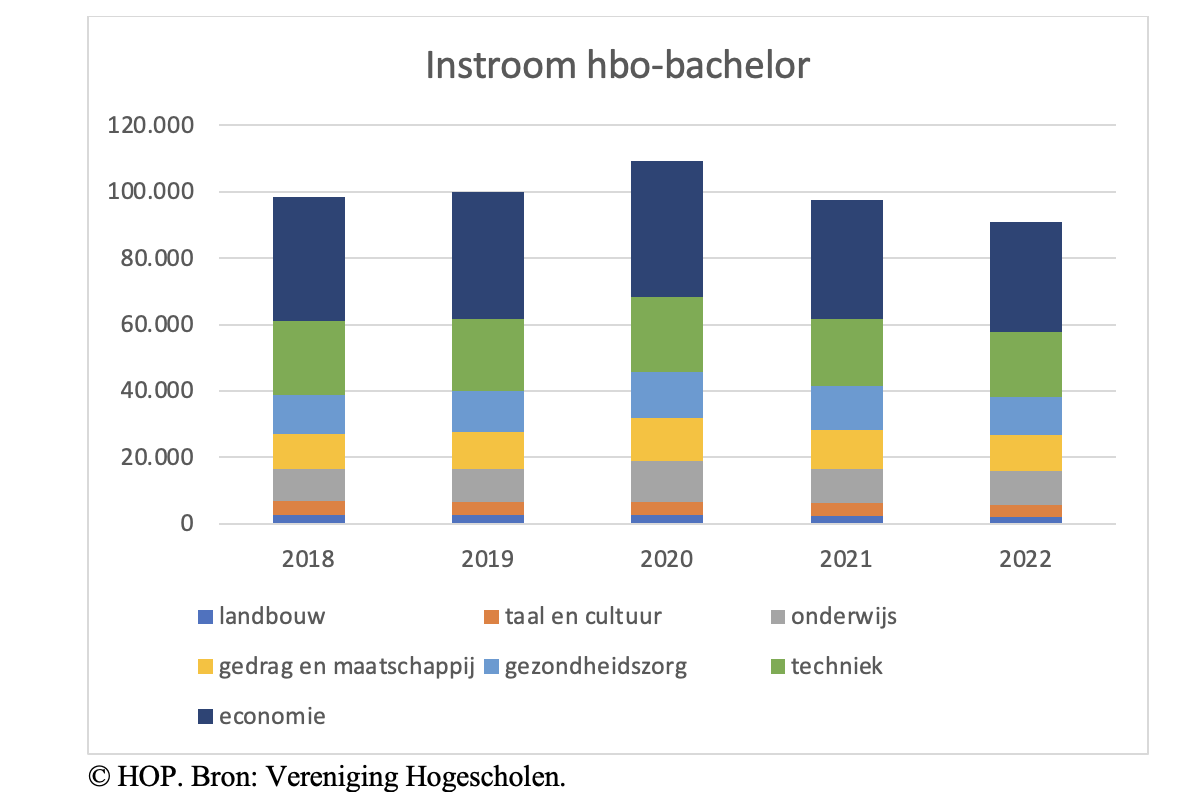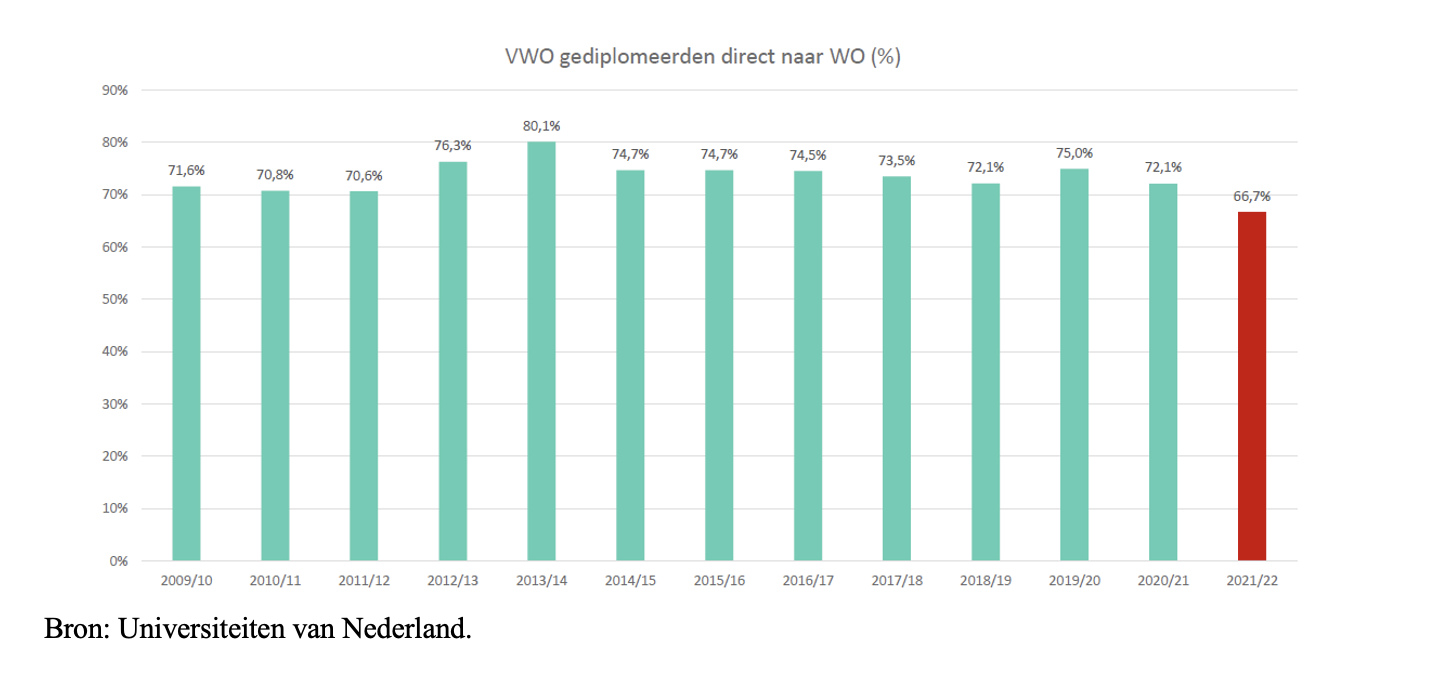Number of first-year students in higher education is falling sharply
Both universities of applied sciences and universities have far fewer first-year students for the second year in a row. This is evident from the latest figures. Only the number of international and associate degree students has grown again.

Image: Pixabay
In previous years, the number of first-year HBO students has increased by a big peak in the corona year 2020. Last year the influx fell back to the level before the corona crisis and now it is again 5,5 percent. For the time being, the counter stands at 107.559 new students, the Association of Universities of Applied Sciences reports.

In higher professional education, the decline is not too bad in the 'deficit sectors' technology (-2,5 percent) and education (-3,7 percent). In contrast, health care programs had no less than 12,5 percent fewer new bachelor's students.
The Association of Universities of Applied Sciences gives no reason for the decline. Compared to 2021, 5,5 percent fewer HAVO students went to HBO and 9 percent fewer MBO students. Only the intake from pre-university education grew slightly by 1,1 percent.
Fewer MBO students in particular are going to HBO
The international intake in higher professional education has increased, especially among first-year students outside Europe. The two-year Ad courses (associate degree) are also still on the rise. The influx there rose by 9,2 percent this year. More and more colleges offer this part-time course.
Universities
Universities are also seeing a sharp decline. 60.000 students started the university bachelor's programmes. That is 3.000 fewer than last year and more than 5.000 fewer than the corona peak year 2020.
Here too, the number of international students has grown again, although not as much as before. The decrease in the number of first-year students is mainly due to pre-university students. Usually about 70 to 75 percent of them go to university immediately after their final exams. This year it is 66,7 percent.

Some of the pre-university students probably take a gap year. One of the reasons may be that students will receive a basic grant again from September 2023 and not yet this year. Studying a year later means a year longer basic grant.
The reverse pattern was visible eight years earlier, as the basic stock market would to disappear in September 2015. After graduating in the 2013/14 school year, more than eighty percent of pre-university students went straight to university.
It is suspected that students also take a gap year after their bachelor's, because the master's programs have slightly fewer registrations: there are 124 thousand, compared to 128 thousand last year.
Small Language Studies
Small language studies continue to struggle. In Nijmegen, the Dutch course seems to be growing again, although the numbers are still small, but the German course, for example, only attracts six first-year students. “That's a real drama,” said rector Han van Krieken of Radboud University Nijmegen in an online meeting for journalists. “I am very concerned about that. We are here a few kilometers from the German border.”
There are differences between the sectors. The only sector that is growing strongly is 'nature', with courses such as biology, chemistry and physics, but also ICT and mathematics. These programs now have 40 registrations (including seniors). That is a doubling compared to 2011.
The cross-sector studies are also doing well. These are mixed programmes, such as the Amsterdam bachelor's degree in 'politics, psychology, law & economics', chosen by Crown Princess Amalia. The other sectors remain about the same or are declining.
However, student numbers are expected to continue to rise in the coming years
“It is expected that student numbers will increase further in the coming years,” says chairman Pieter Duisenberg of the umbrella association UNL. The universities and universities of applied sciences are discussing the future with the minister.
The counts are not yet final. The official figures usually come in February and, due to various corrections, may differ slightly from the figures presented by the universities and colleges today.
Also read: Rapid growth causes stress in higher professional education of HBO graduates are more often satisfied than WO graduates with participation in decision-making.


